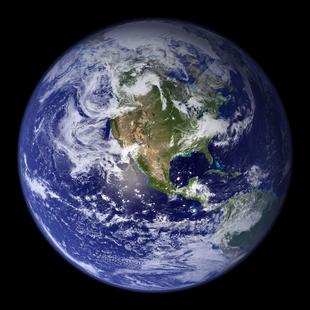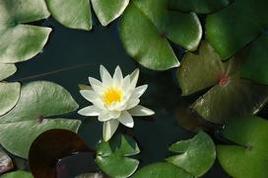|
Human impact on Earth is so profound and all pervasive that many conclude we have caused a new geological epoch called the Anthropocene or Human Age. We humans, with our world population approaching 9 billion people, have become a geologic change agent. Our technological effects, immense resource consumption, widespread pollution of land and water, vast landscape and climate impacts, and our sheer numbers and ubiquitous presence have altered the entire planet. There remain no parts of the Earth’s landscapes, no body of water, and no wildlife and natural places, that are untouched and unaffected by humankind. No place is so remote not to bear evidence of and impacts by humans. We could even say that nature is no longer “natural.”  There is a growing public awareness of these difficult truths, which are being reported more frequently by our media (though seldom with enough of a sense of urgency). The National Geographic Society for some years has been attempting to raise public awareness in its publications, documentary films, and online articles, including its November 2015 special issue on climate (“Cool It”), which explains that dramatic changes are happening now and will likely accelerate. Without drastic alteration in human practices and behaviors, things will likely get much worse for most of the world’s human and natural communities. One hopes a catastrophic, worldwide “Pearl Harbor” or more Katrinas and Fukushimas will not be needed to wake up humanity to the urgent necessity for an overhaul in our economies and behaviors. Earth is our only home, and for our lasting well-being we had better figure out how to achieve harmony with it. Does humankind have the ability and will to change/ameliorate our Earthwide, oceanic, and atmospheric impacts?  Photo by Laura Cotterman Photo by Laura Cotterman “The whole world is singing – from the Arctic to the deep jungles,” states a wistful beginning to the Discovery Channel's documentary film “Racing Extinction.” Scientists share whale song and bird calls that are disappearing forever. The program teaches what most conservationists already know: that we have entered a sixth period of mass extinction in Earth’s 4.6 billion-year history. The Anthropocene – the time of humans – marks as great an extinction occurrence as the mass extinction that killed off the dinosaurs 65 million years ago by an asteroid strike. This time, the documentary says, “humans are the asteroid.” Scientists predict we could lose half the species on the planet in 100 years. If you’re paying attention at all, you know this already. But you may not know how close we are to a point of no return. The vast ocean’s chemistry is changing. When carbon dioxide is absorbed by the ocean, it becomes carbonic acid. On contact, shells dissolve. The ocean is becoming uninhabitable. The microscopic images of plankton are beautiful, neon-lit wonders. I had never seen these images nor did I know that we get half of the oxygen on the planet, the very air we breathe, from plankton. Forty percent of the plankton will disappear in 50 years due to climate change. Habitat loss, over-fishing, and an inefficient human diet that requires 1.6 billion methane-belching cows to supply our meat-based diet all add to our planetary problem. But more alarming than all this is the exponential rate at which our planet will heat up if we melt the protective layer over the tundra that stores methane. Once the ice melts and methane is unleashed, there’s no putting it back. Change will happen exponentially and wondrous life will die, never to return. Then people will be the endangered species. Our air, our food, our water are all at risk. Profits, a short attention span, or towing the party line results in most people being unconcerned, even when the tenants of their proclaimed faith include being a good steward of the Earth. The documentary shares individual conservation success stories. So if you watched until the heart-breaking end, I hope that is the takeaway. Jane Goodall quots the Chinese proverb that it is better to light one candle than to curse the darkness. Watch it and weep. But then decide to act. Be the light. Elect people who are trying to solve environmental problems. Fight for good climate change policy and clean energy. Give up meat for some of your meals. Invest in solar. Reduce your impact. Support land conservation. E. O. Wilson, famous Pulitzer Prize-winning Harvard entomologist says that the solution to saving life on the planet is to create large reserves. If the world will act to stop climate change, then in Tennessee, let’s be ready to provide woods, waters, and wildlife habitat so that Tennessee and the Earth will still sing. View the FILM. For local (Tennessee) action: contact tenngreen.org. --Kathleen Williams-Mooradian Kathleen Williams-Mooradian is senior advisor to the Tennessee Parks & Greenways Foundation (TennGreen) and advisor to Southern Conservation Partners. She was TennGreen's founder and its long-time chief executive offic |
When we see land as a community to which we belong, we may begin to use it with love and respect.... Conservation, viewed in its entirety, is the slow and laborious unfolding of a new relationship between people and land." There is in fact no distinction between the fate of the land and the fate of the people. When one is abused, the other suffers. From the PresidentSCP President Chuck Roe looked at land conservation along the route of John Muir's "Southern Trek." About ViewpointThis blog offers views of our Board and partners. We invite your viewpoint on the following questions: Archives
April 2024
Categories
All
|

 RSS Feed
RSS Feed